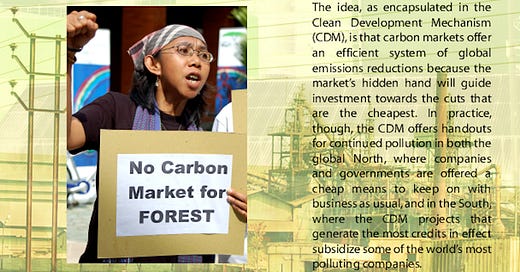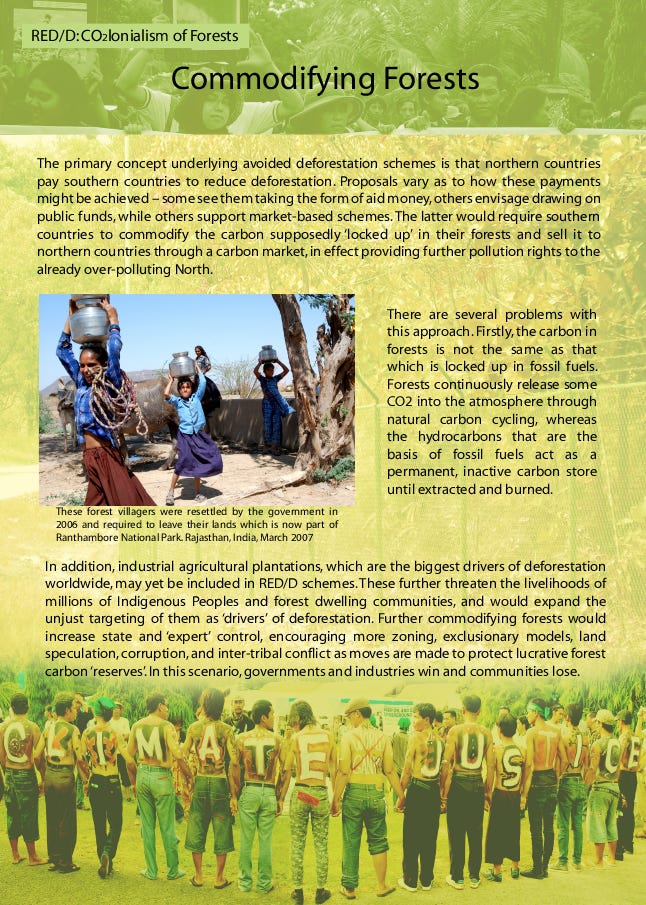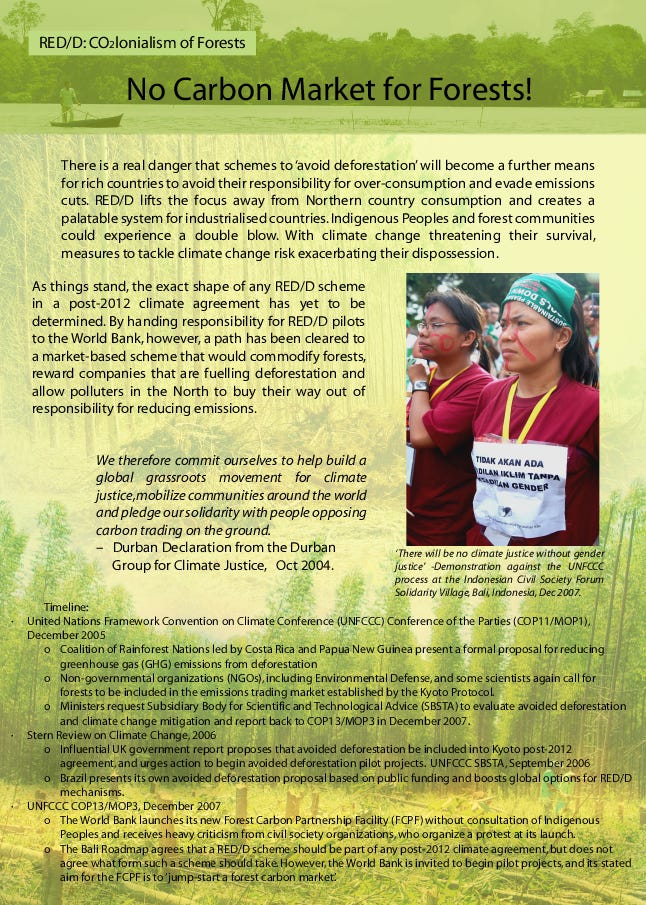REDD: CO₂lonialism of Forests
A year ago, members of the Durban Group for Climate Justice produced a photo essay “to highlight the serious flaws associated with RED/D and to give a voice to communities faced with confronting colonialist top-down policies”.
The photo essay brings some historical context to the REDD proposals that are currently being foisted on communities and forests in the global South. Although much has been discussed about REDD since the photo essay was produced, the critique has lost none of its relevance to ongoing discussions about REDD.
This is not the first time that apparently well-meaning programmes have been developed supposedly for the benefit of the communities, but which in fact benefit corporations. The Clean Development Mechanism is one such example. In December 2003, at the Ninth Conference of the Parties to the UNFCCC in Milan, an Indigenous Peoples’ statement pointed out that
Sinks projects do not contribute to climate change mitigation and sustainable development. The modalities and procedures for afforestation and reforestation project activities under the CDM do not respect and guarantee our right to lands, territories, and self determination.
The photo essay includes a reminder of the hundreds of people protesting outside the Bali negotiations when the World Bank launched its Forest Carbon Partnership Facility. “The facility’s ultimate goal is to jump-start a forest carbon market,” said Benoit Bosquet, the Bank official responsible for leading the development of the FCPF. The Durban Group comments that the FCPF should be seen as “not so much an approach to saving forests as a means to grow money on trees.”
The photo essay highlights the Kampar peninsular in Sumatra, Indonesia, which the FCPF describes as its “poster child”, as an example of the problems raised by paying companies responsible for clearing forests through REDD:
“The Asian paper and pulp giant, Asia Pacific Resources International Holdings Limited (APRIL), has proposed a ‘community ring’ which would surround the peninsula with acacia and eucalyptus plantations to ‘protect’ the remaining forest from the local communities, who they accuse of illegal logging. The ring would clear cut almost half of the remaining forest, and the company would be awarded further concessions for its industrial tree plantations.”
In this context, notes the Durban Group, “REDD does nothing to address the underlying driver of deforestation: the overcapacity of APRIL and rival firm APP’s paper mills.”
The posters can be downloaded in print quality from Carbon Trade Watch’s website.











